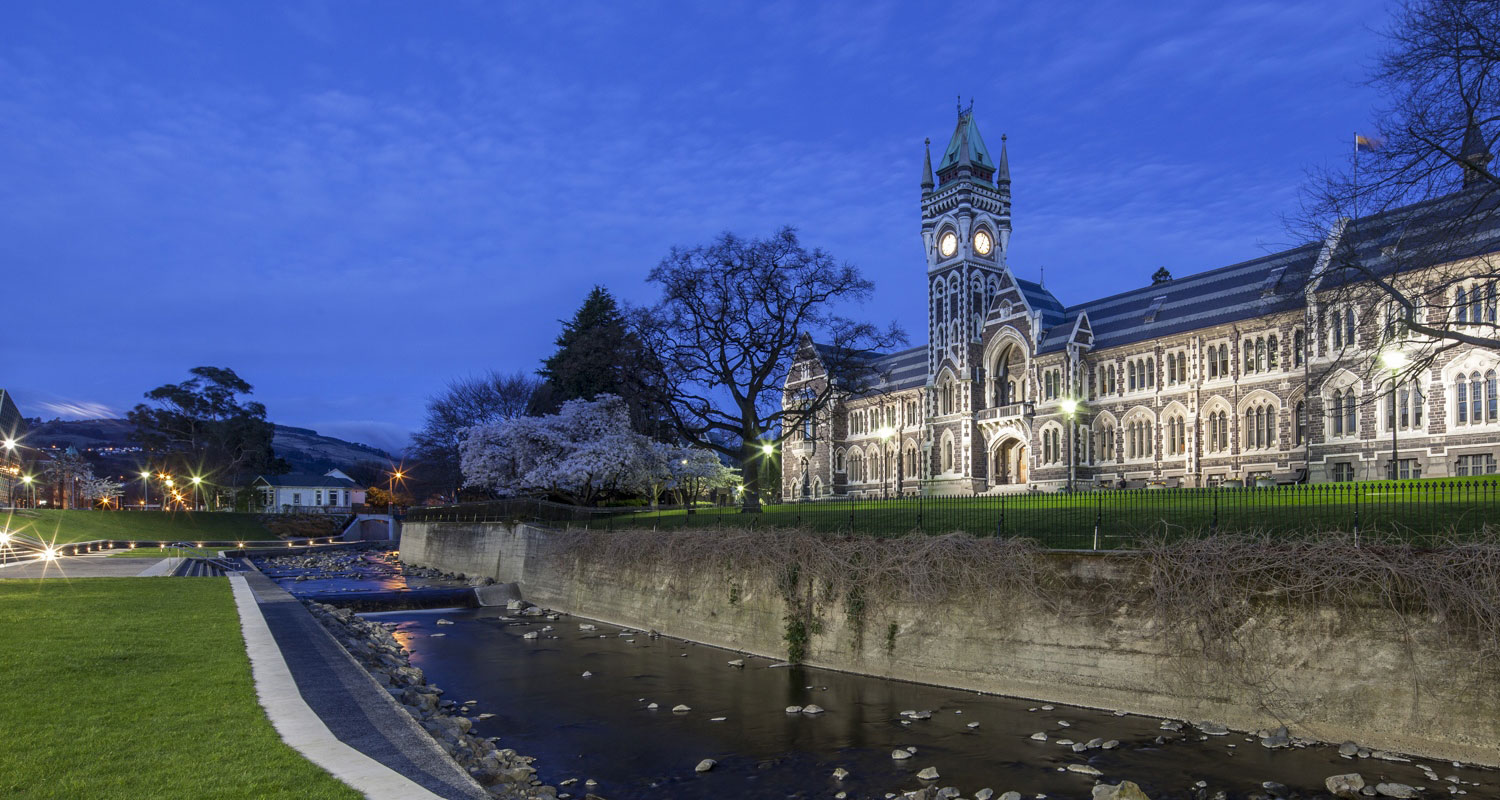
UniNews
Science Prize awarded to Dunedin Study
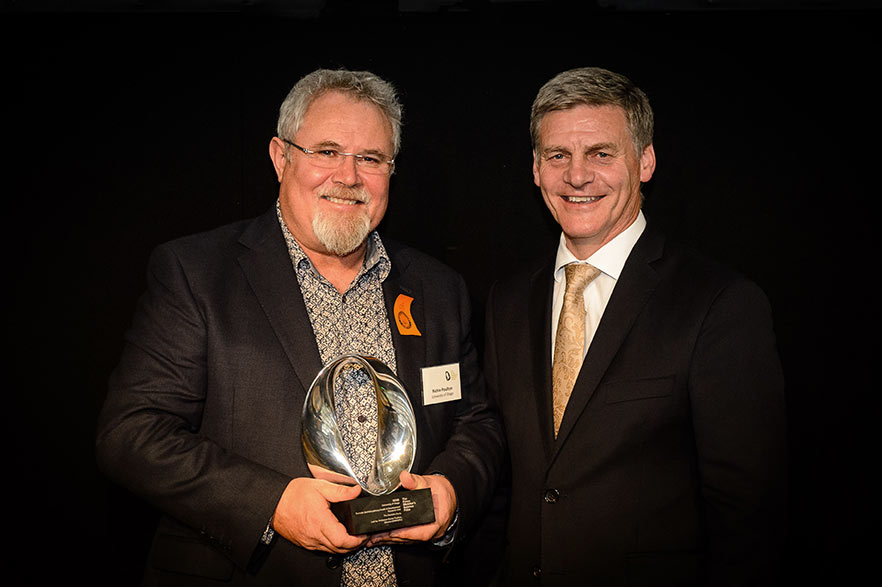
Professor Richie Poulton and New Zealand Prime Minister, the Rt Hon. Bill English.
The University of Otago's internationally-acclaimed Dunedin Study has been awarded one of New Zealand's most important science honours, the 2016 Prime Minister's Science Prize.
The $500,000 award was presented to the team led by Professor Richie Poulton in March.
Officially known as the Dunedin Multidisciplinary Health and Development Research Unit (DMHDRU), the team has been engaged in a ground-breaking longitudinal study for the past 45 years, tracking the lives of 1,037 children born at Queen Mary Maternity Hospital in 1972-73. Of these, 961 study members are still participating, representing 95 per cent of those still alive; 38 have died.
Arguably providing the most-detailed data on human development ever amassed, the study has led to hundreds of international studies with results that have informed policymakers, changing – and saving – the lives of people around the world.
This is the third time Otago researchers have won the Prime Minister's Science Prize: in 2014, it was presented to the He Kainga Oranga/Housing and Health Research Programme, led by Professor Philippa Howden-Chapman; and to scientists from the University and the National Institute of Water and Atmospheric Research in 2011.
Dunedin Study members were also recently presented with the University of Otago's 2016 Research Group Award, recognising the efforts of all the researchers, support staff and participants, and the study's outstanding record of publication and its impacts on society in New Zealand and overseas. This was only the second time the award has been presented.
A comprehensive story about the Dunedin Study will be featured in the October issue of the Otago Magazine
New premies for DMHDRU
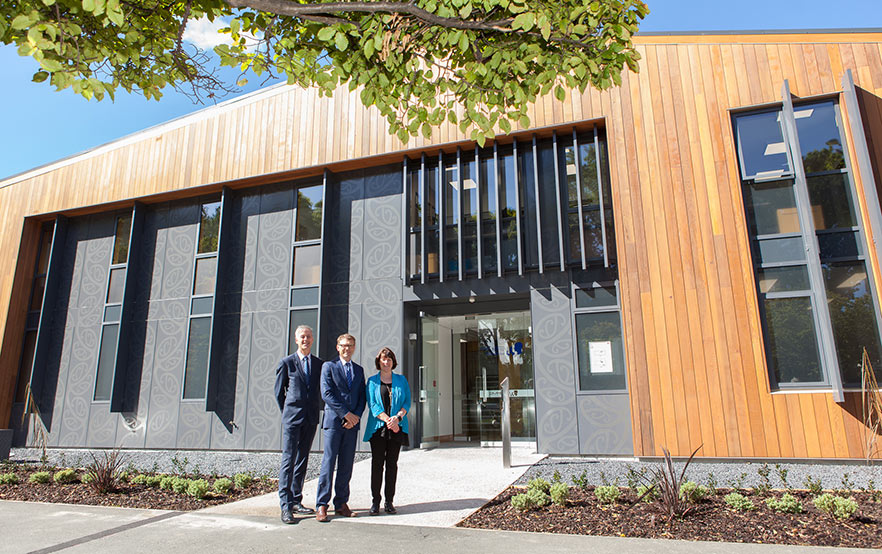
A purpose-built home for the Dunedin Multidisciplinary Health and Development Study was officially opened by Tertiary Education Minister the Hon. Paul Goldsmith in January (pictured with Deputy Vice-Chancellor (Research and Enterprise) Professor Richard Blaikie and Vice-Chancellor Professor Harlene Hayne).
The new building, on the corner of Union Street and Anzac Avenue, is designed with the members of the Study in mind. Every few years study members return from all corners of the globe to be assessed, with intensive interviews and testing covering every aspect of their lives and well-being, from mental health to cardiac fitness and respiratory tests.
University of Otago Vice-Chancellor Professor Harlene Hayne says she is delighted that the Dunedin Study now has new premises that reflect the importance of the study to the University, and its national and international significance.
Māori medical graduates create history
Forty-five Māori medical students – the largest number in New Zealand's history – graduated from the University of Otago in December in what was a significant event for the graduates, their whānau, the University, iwi Māori and the New Zealand health workforce. For the first time at Otago, Māori representation within the total number of medical graduates equated to the proportion of Māori in the New Zealand population.
Professor Peter Crampton, Pro-Vice-Chancellor (Health Sciences) and Dean, University of Otago Medical School, says New Zealand's medical workforce is on the verge of rapid and exciting changes in both the number and proportion of Māori doctors.
“This graduation of 45 new Māori doctors marks a significant inflection point – we expect at least this number of Māori doctors to graduate each year from now on.”
PM announces partnership
In October 2016, then Prime Minister the Rt Hon. John Key announced an important memorandum of understanding between the University and a prestigious educational institute in Bombay to foster a new teaching collaboration between the two organisations.
This is an opportunity for Otago and BSE Institute Ltd, a wholly-owned subsidiary of the Bombay Stock Exchange, to teach business-related postgraduate programmes together, to encourage student mobility between India and New Zealand, and to foster stronger links for future research between the two academic communities.
“Initially, the collaboration will focus on postgraduate programmes at Otago's School of Business, including several taught master's programmes and the MBA,” says Otago's Director International Mr Simon Chu.
Otago tops national measures
The University of Otago has topped all but one of the key indicators measuring educational performance of students at New Zealand's universities.
The Tertiary Education Commission's Educational Performance Indicators for 2015 examine areas such as overall course and qualification completions, retention rates and progression to higher levels of study. This year the usual four indicators were supplemented by a new indicator looking specifically at first-year retention and a revised qualification completion indicator.
Vice-Chancellor Professor Harlene Hayne welcomed the release of the indicators, saying Otago's stellar results reflect the excellence of the teaching and learning environment that the University offers students, and the efforts those students put into their studies.
Otago MBA among world's best
Otago Business School's MBA degree has been judged amongst the world's best in the latest QS Global 250 Business Schools report.
Otago's MBA is the only one in New Zealand to be included in the report and was ranked 28th in the Asia-Pacific region for graduate employability. The analysis recognises the top MBA degrees for both employability and academic standards across all major world regions.
Marsden Fund success
University of Otago researchers have been awarded more than $13.7 million in the latest annual Marsden Fund round to undertake 23 world-class research projects. The innovative Otago projects will be led by researchers from 14 different departments across the University.
Deputy Vice-Chancellor (Research and Enterprise) Professor Richard Blaikie says it is very pleasing that nine of the Otago projects are Fast-Start grants designed to support outstanding early-career researchers.
“From these up-and-coming researchers will come the University's research leaders of tomorrow so it is wonderful to see their important work recognised and supported through the fund.”
The Marsden Fund supports excellent investigator-initiated research in science, engineering, mathematics, social sciences and the humanities in New Zealand.
QS subject rankings
The University of Otago has been placed among the top 50 institutions in the world in five subject areas in the recently released 2017 QS World University Rankings by Subject.
Otago was ranked seventh internationally for the study of Sport and sport-related disciplines, the highest ranking achieved by any New Zealand university for any subject area in the 2017 rankings.
Four further subjects ranked inside the top 50: Anatomy (24th), Dentistry (29th), Archaeology (40th) and Development Studies (44th). Anthropology, Geography, History, Law, Medicine, Performing Arts and Psychology were also ranked in the top 100.
Deputy Vice-Chancellor (Academic) Professor Vernon Squire says the results are a pleasing independent acknowledgment of the breadth and depth of the University's teaching and research excellence across a range of disciplines.
MOU renewed
The University recently renewed an important memorandum of understanding (MOU) with Te Rūnanga o Toa Rangatira. The MOU was signed at a ceremony at the University of Otago, Wellington, by Te Taku Parai, chair of Te Rūnanga, Sir Matiu Rei, Te Rūnanga Executive Director, and Mr John Ward, Chancellor of the University.
Dean and Head of Wellington Campus Professor Sunny Collings said that Ngāti Toa Rangatira has always been in the forefront of innovations in whānau ora, primary care and health promotion – developing health and social services that are Māori-led and benefit the whole community.
“They are well known for their determination and strong track record in improving access to low-cost primary health care for residents of Porirua and Wellington. We acknowledge their contribution to the education of health professionals, including our dental and medical students,” she says.
Major artwork unveiled
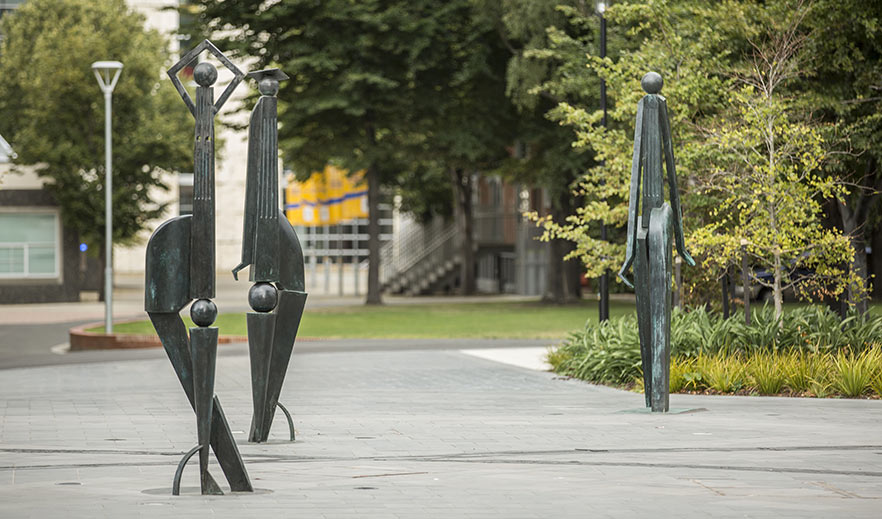
In a significant contribution to culture in Dunedin, an artwork worth half a million dollars and standing around 3.2 metres tall has been gifted to the University by the Stuart Residence Halls Council to celebrate its 75th anniversary.
Pathways, by internationally renowned New Zealand sculptor Dr Paul Dibble, has been placed in a busy pedestrian area – at the junction of Union Walk and Castle Walk; between the Union Lawn and the Clocktower Building.
Vice-Chancellor Professor Harlene Hayne says the gift is a very generous contribution to the University's strategic aim to provide outstanding campus environments and a salute to the country's accomplished arts community.
“The University is proud of the strong and vibrant relationship it has enjoyed with the council during the past 75 years and grateful for the personal commitment various members of the council have volunteered over that period to enriching the University on so many different levels,” she says.
Awards/Achievements
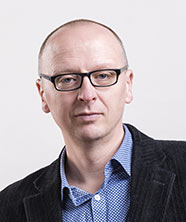
Professor Tony Ballantyne
The outstanding achievements of two University of Otago researchers were recognised at the 2016 Research Honours Dinner. History researcher Professor Tony Ballantyne FRSNZ (History and Art History) was awarded the Humanities Aronui Medal for innovative work of outstanding merit in the humanities. Professor Hamish Spencer FRSNZ (Zoology) received the Callaghan Medal for his outstanding contribution to science communication and raising public awareness of the value of science to human progress.
Drs Federico Baltar (Marine Science) and Virginia Toy (Geology) have received five-year Rutherford Discovery Fellowships. Dr Baltar's research programme will investigate the role that microbes play in the biogeochemistry of oceans in waters that are rich in nutrients but low in plankton. Dr Toy's research programme will investigate how observations of fault rocks can be used to infer their mechanical behaviour.
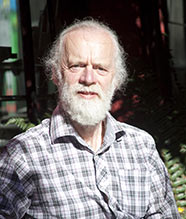
Associate Professor Nigel Dickson
Associate Professor Nigel Dickson (Preventive and Social Medicine) was one of five people recognised by the New Zealand AIDS Foundation late last year, receiving honorary Life Membership – the highest honour the organisation bestows.
A three-year grant from the Bill & Melinda Gates Foundation will support Professor John Crump (Centre for International Health)) and collaborators at Kilimanjaro Christian Medical Centre and Duke University to study severe typhoid fever in northern Tanzania.
National Poisons Centre Honorary Fellow Dr Ian Hall has been awarded the Friendship Award by the Chinese Government for his contribution towards China's economic and social progress. The award recognises his work at the Lhasa-based Tibetan Academy for Agriculture and Animal Science.
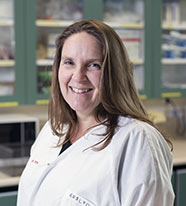
Dr Roslyn Kemp
Dr Roslyn Kemp (Microbiology and Immunology) won the inaugural Roche Translational Research Fellowship for her work investigating the immune response within cancer cells to improve treatment outcomes for patients with bowel cancer.
Professor Alison Heather (Physiology) has been awarded the Translational Research Grant from the Division of Health Sciences to assist her with the development of a new bioassay to detect estrogenic compounds in blood samples.
Dr Karl Iremonger (Physiology) and Dr Tracy Melzer (Medicine, Christchurch) are among several Otago researchers who gained funding to pursue innovative projects in the Neurological Foundation's latest grant round announced late last year.
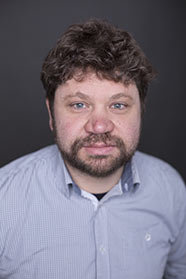
Professor David Bryant
Professor David Bryant (Mathematics and Statistics) won the New Zealand Mathematics Society Research Award in recognition of his work developing mathematical, statistical and computational tools for evolutionary biology, and work drawing on evolutionary biology to develop new theories in mathematics.
The PIPI (pre-diabetes intervention package in primary care) project won an Excellence in Innovation award at the Hawke's Bay District Health Board Health Awards. Based around identifying those at risk, encouraging weight loss and offering continued support to these people in order to prevent diabetes, its complications and associated costs, the project is being led by Otago's Edgar Diabetes and Obesity Research Centre in partnership with Health Hawke's Bay and Sport Hawke's Bay.
Appointments
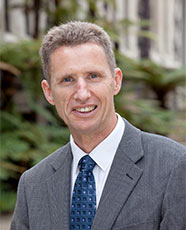
Professor Richard Barker
Professor Richard Barker, who holds the Chair in Statistics in the Department of Mathematics and Statistics, is the next Pro-Vice-Chancellor of the Division of Sciences for an 18-month period. He took up the role at the start of the year.
Leading educational leadership researcher Professor Ross Notman is the next Dean of the College of Education. Professor Notman takes up his position in April 2017 after Professor Lisa Smith completes her term as Dean.
Dr Mele Taumoepeau has been appointed as inaugural Associate Dean (Pacific) in the Division of Sciences. Dr Taumoepeau will fulfil this role in addition to her position of senior lecturer within the Department of Psychology.
Professorial promotions
Seventeen leading academics were promoted to full professor, effective 1 February: Margaret Briggs (Law), Hallie Buckley (Anatomy), Anthony Butler (Radiology, University of Otago, Christchurch), Neil Carr (Tourism), Nicholas Chandler (Oral Rehabilitation), Gerard Closs (Zoology), Alison Cree (Zoology), Gregory Dawes (Philosophy), Shelley Griffiths (Law), Robert Hancox (Preventive and Social Medicine), Janine Hayward (Politics), Jing-Bao Nie (Bioethics Centre), Ross Notman (College of Education), Nigel Perry (Chemistry), Susan Pullon (Primary Healthcare and General Practice, University of Otago, Wellington), John Reynolds (Anatomy), and Rachael Taylor (Medicine).
New Year Honours
Alumni recognised in the New Year Honours include:
Knight Companion of the New Zealand Order of Merit (KNZM): Distinguished Professor Richard Lewis Maxwell Faull, for services to medical research.
Officer of the New Zealand Order of Merit (ONZM): Mrs Beverley Rae Duff, for services to women and education; Mr John Ioane Fiso, for services to sport, education and the Pacific community; Professor Donald Malcolm McRae, for services to the State and international law; Ms Linda Marie Penno, for services to women's health and reproductive rights; Dr Neil Andrew Sinclair, for services to local government; and Ms Vanessa Clare van Uden, for services to local government.
Member of the New Zealand Order of Merit (MNZM): Dr Stuart Whitaker Brown, for services to children's health; Ms Bernadette Hall, for services to literature; Mrs Robyn Hickman, for services to education; Dr John Chirnside Hyndman, for services to health and innovation; Ms Elizabeth Mason Sinclair, for services to the State; Mr Desmond Gerald Smith, for services to rugby and the community; and Mrs Alison Thelma Wilkie, for services to health and education.
Companion of the Queen's Service Order (QSO): Mr Richard Gerald McElrea, for services as a coroner and to Antarctic heritage.
Queen's Service Medal (QSM): Dr James Richard Paul Kay, for services to polo; The Reverend Peter Brian Sykes, for services to the community; and Reverend Pelu Tuai, for services to the Pacific community.
Emeritus Professors
The University Council has recently awarded the following academics the status of Emeritus Professor: Professor Helen May (College of Education) and Professor Brian A. Darlow (Paediatrics, Christchurch).
Obituaries
Emeritus Professor Margaret Baird, a committed biomedical scientist who brought wisdom, encouragement and laughter to her colleagues and her many students. In 2013, she became the first New Zealander to be awarded the Derrick Rowley Medal for service to the Australasian Society of Immunology.
Emeritus Professor Douglas S. Coombs who joined Otago in 1947, becoming professor in 1956 and headed the Department of Geology for more than three decades. His research interests included mineralogy and petrology of metamorphic and igneous rocks, and New Zealand tectonics.
Emeritus Professor Brian Cox who joined Otago in 1963, becoming a professor in 1978 and Head of the Department of Computer Science from its founding in 1984 to his retirement in 2000. Prior to that, he served as Director of the Computing Centre (now ITS).
Emeritus Professor Richard Dowden. A Fellow of the Royal Society of New Zealand, he joined Otago in 1966 and, during his lengthy career in the Department of Physics, founded the Space Physics Research Group. He also played a major role in founding the World Wide Lightning Location Network.
Emeritus Professor Peter (P.K.) Grant who joined the Department of Chemistry as a lecturer in 1962, and was appointed to a personal chair in Chemistry in 1980. He retired in 1991. He is remembered within the department by the P.K.Grant prize, which is awarded to a fourth-year honours student.
Dr Ted Nye who joined the Department of Medicine in 1960, retiring as Associate Professor of Medicine in 1990. He directed research in the Lipid laboratory (later named the Hunter-Nye Lipid laboratory) and maintained contact with the research clinic until his death.
Associate Professor John Burke (retired) joined Otago's Department of Accounting and Finance in 1985 and also held two different roles in the Business School's MBA programme, including as MBA director from 2000 to 2002. He was a stalwart of the Dunedin rugby community and was a life member of the Otago University Rugby Football Club.
